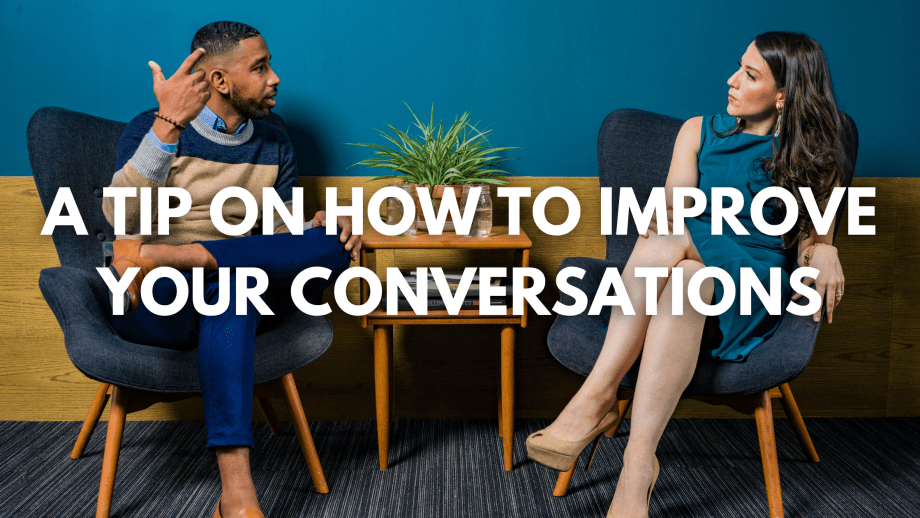
While it is a simple action, conversation serves as an important factor in our relationships. Whether it be with classmates, family, friends or new acquaintances, it is something that we engage in daily. A good conversation does wonders to build relationships and improves the moods of everyone involved. I am going to provide a simple and effective tip to make your conversations – and overall communication – significantly better.
Listening wholeheartedly and becoming genuinely interested in what someone is saying generates good conversation. By putting this into practice in every conversation you have, you will elevate the quality of your communication in every type of relationship. This seems like an obvious practice; however, there is an aspect that is often overlooked. It is the part I mentioned about becoming genuinely interested in what someone is saying. We tend to go through our busy day-to-day lives thinking about ourselves and what we want to do or need to get done. While this is natural, it proves threatening to our conversations as we become so consumed with our own needs. If you can overlook your busy schedule for a short period of time and become invested in another person, you will possess a rare skill that people will recognize and appreciate.
This can be illustrated by an interview I scheduled with Dr. Delphine Dean at Clemson’s COVID-19 testing site: the Clemson REDDI Lab. I needed the interview along with some footage of the REDDI Lab to create a video for a project that I had been working on. As a marketing and LAIB major, I do not know much about science or lab work. When I met Dr. Dean, she was excited to tell me about what she does and how it works. I decided to learn as much as I could from my interview with Dr. Dean. When I showed a strong interest in her work and the REDDI Lab, Dr. Dean flooded me with the procedural steps and chemical considerations involved in determining the results of the COVID-19 samples. I was impressed to learn of the technological innovations and efficiency improvements that went into making the lab what it is. She was kind enough to break down some of the content into simpler terms so that I could understand it more thoroughly. We both left the interview with a win – I gained new knowledge about a Clemson facility, and she got to teach someone about her passion.
I have employed the practice of slowing down and genuinely engaging with people many times and received the same result every time. If you find that you are lacking success or fulfillment after some of your conversations, this trick can help you see major improvements. As stated by Dale Carnegie in his book How To Win Friends and Influence People, “If you want others to like you, if you want to develop real friendships, if you want to help others at the same time as you help yourself, keep this principle in mind: become genuinely interested in other people.”
If you find yourself needing to conduct an interview with someone, consider using these tips to make it a memorable experience for both you and the interviewee:
- Research your interviewee
-
-
- Taking the time to research the company or work of who you are interviewing shows that you care enough to learn more about what they do. Also, it will help you to formulate questions during the interview.
-
- Be present
-
-
- Use the time of the interview to think only about the present moment. Give the interviewee your full attention and respect. This will show that you value their time – something that everyone appreciates.
-
- Ask questions
-
-
- A good way to show your genuine interest is to ask questions. Having good questions demonstrates that you are listening and engaged.
-
- Thank your interviewee
-
- Don’t forget to show your appreciation for sharing their experience and their time.
Source Cited: Carnegie, D. (1981). Part 2, Chapter 1. In How to win friends and influence people. essay, Simon & Schuster.
Written by: Mallory Galloway
4/15/22
